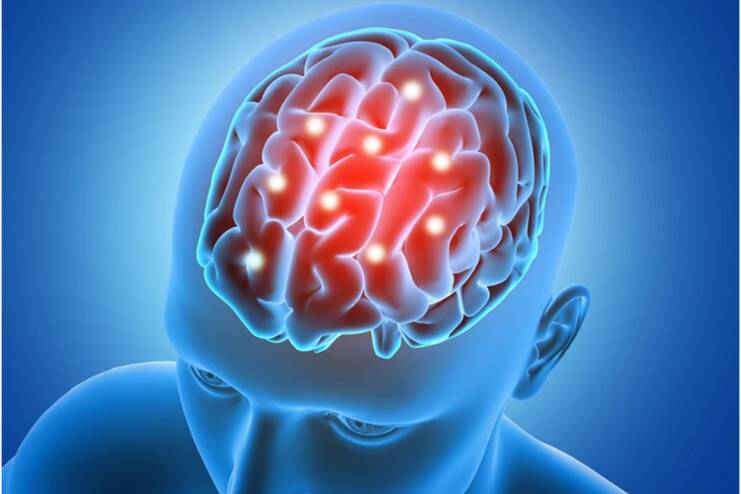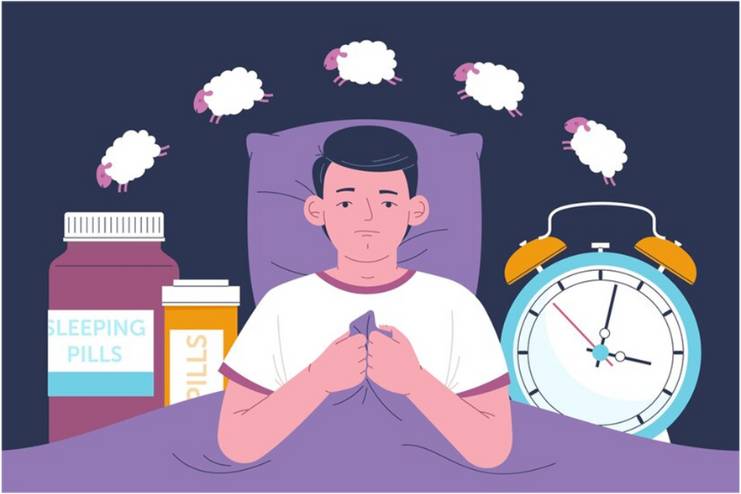AI Contribution
At HealthSpectra, we may use AI to refine grammar and structure, but every piece is shaped, checked, and approved by real people, our expert writers and editors, to ensure clarity, credibility, and care. Learn more..Affiliate Disclaimer
Some links in this article are affiliate links. We may earn a small commission if you make a purchase through these links, at no extra cost to you. We only recommend products we find useful to our readersAs we work towards improved health, prioritizing better sleep is essential for both physical and mental well-being. Among all the sleep stages, REM, or Rapid Eye Movement, is one that matters most in cognition and emotional well-being. It is the only stage of sleep when the human brain is working at peak performance, consolidating memory, managing emotions, and detoxifying.
Understanding the role of REM sleep in brain health helps highlight the complexity of sleep and why quality sleep is essential for mental sharpness, emotional stability, and cognitive function.
In this article, we will examine REM sleep, its benefits for brain health, the consequences of deprivation of REM sleep, and how to enhance it for a sharper, healthier brain.
What is REM Sleep?

REM (Rapid Eye Movement) sleep is a stage of sleep characterized by quick, random eye movements, vivid dreaming, and heightened brain activity similar to wakefulness. It typically occurs in cycles throughout the night, with each cycle lasting longer as sleep progresses. During REM sleep, the body experiences temporary muscle paralysis, preventing one from acting out dreams.
Also, read: 7 Best Hypoallergenic Pillows for a Healthier Sleep
How REM Sleep Supports Brain Health

REM sleep is essential for optimal brain health as it consolidates memories, fosters creativity, and organizes the brain to effectively process daily emotions. REM sleep involves reviewing and rearranging the memories of the day. It not only reorganizes what we learn but also links new information with existing knowledge to create connections, which can sometimes lead to bursts of creative ideas. That is why many people enjoy moments of clarity or innovative ideas right after a good sleep.
The most significant contribution of REM sleep is in memory consolidation, which is essential for learning and retaining skills. Previous studies have demonstrated that pre and post-learning sleep improves memory retention, mainly in REM sleep, which enhances procedural memories, such as playing a musical instrument or solving a complex task.
REM sleep helps manage emotions by providing an opportunity for the brain to experience emotions. Sometimes, the intensity of an emotion may require some time to stabilize and reduce, leading to greater psychological resilience.
As people age, they often have less REM sleep, which can affect memory retention and even emotional instability. Researchers were able to prove that better quality of sleep, especially REM sleep, might enhance the memory of aged people. Thus, REM sleep can be a crucial part of cognitive health, learning, and emotional balance throughout life.
Also, read: Sleep Debt Explained: Can You Make Up for Lost Sleep?
Consequences of REM Sleep Deprivation

Lack of REM sleep will impact both mental and physical conditions. Some of the main effects include:
- Cognitive Impairment: The loss of REM sleep can cause problems with memory, problem-solving, and other cognitive activities. In such cases, individuals may experience a loss of concentration, forgetfulness, and decision-making.
- Mood Changes: Lack of REM sleep, primarily due to sleep disruption, is associated with irritability, increased stress, as well as a greater likelihood of developing anxiety or depression.
- Impaired Learning: Lack of sufficient REM sleep leads to poor consolidation of memory, thereby impeding new information retention capacity and learning.
- Health Complications Susceptibility: REM sleep deprivation has been linked to cardiovascular disturbances, type 2 diabetes susceptibility, and neurodegenerative conditions, such as Alzheimer’s.
- Higher Risk of Nightmares: Disruptions in REM sleep lead to more frequent and intense nightmares. This contributes to sleep disorders such as REM sleep behavior disorder.
- Role in Emotional Regulation: REM sleep is associated with treating emotional memories. Loss of this sleep can complicate emotional regulation and may increase the risk of emotional instability.
These effects demonstrate the importance of REM sleep in sustaining cognitive function and overall well-being.
Also, read: 8 Smart Home Devices to Enhance Your Sleep
How to Improve REM Sleep

Improvement of REM sleep essentially correlates with the improvement of general health, cognitive potential, and emotional fitness. The following are some practical guidelines that you can follow to acquire restorative REM sleep.
- Set a Regular Sleep Pattern: Sleeping and waking at the same time each day helps regulate your body’s internal clock and prepares it for quality sleep.
- Limit Stimulants: Avoid caffeine, nicotine, and other stimulants, especially in the afternoon and evening, since these can cut across the ability to fall asleep and the ability to sleep.
- Avoid Alcohol Before Bed: Alcohol itself induces sleep, but it can affect the REM of sleep. Try to avoid drinking alcohol at least a few hours before bedtime.
- Develop a Soothing Bedtime Routine: Engage in relaxing activities such as bathing, listening to soothing music, or reading before bed to tell your body that it is time to wind down.
- Exercise Daily: Try to exercise vigorously for at least half an hour during the day, but avoid strenuous exercise just before bedtime since this can interfere with the sleep cycle.
- Optimize Your Sleep Environment: Keep your bedroom as dark, silent, and cool as possible. Reserve it for sleeping and relaxation. Never use it for work. Avoid screens.
- Don’t Lie Awake in Bed: If you are unable to sleep, go out and do something quietly until you are sleepy, like reading or listening to soothing music.
- Change Old Pillows: Use comfortable pillows that help you sleep comfortably all night.
If you have tried all the above techniques and your REM sleep still hasn’t improved, consult a doctor. Sleeping problems like insomnia, side effects of certain medications, and mental diseases such as depression could be a reason behind it. Find the underlying cause and suitable treatments or therapies for healthy sleep patterns to occur again.
Conclusion
REM sleep is a crucial part of the sleep cycle, supporting overall health, cognitive function, and emotional regulation. This phase, marked by high brain activity, plays a significant role in memory consolidation, creativity, and emotional processing, essential for daily functioning and long-term well-being.
REM sleep deprivation can impair memory, alter mood, and increase health risks, highlighting its necessity for maintaining good health. Establishing a regular sleep schedule, minimizing stimulants, and creating a calming pre-sleep routine can enhance REM sleep quality, boosting cognitive ability, emotional resilience, and overall wellness. By prioritizing REM sleep, one can achieve a healthier, more balanced life.
Other Recommended Articles:
In this Article






















